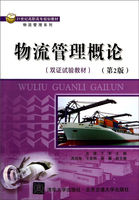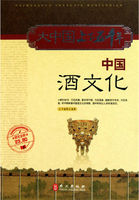Look and see, also, if what is placed in the genus partakes or could possibly partake of any contrary of the genus: for in that case the same thing will at the same time partake of contrary things, seeing that the genus is never absent from it, while it partakes, or can possibly partake, of the contrary genus as well. Moreover, see whether the species shares in any character which it is utterly impossible for any member of the genus to have. Thus (e.g.) if the soul has a share in life, while it is impossible for any number to live, then the soul could not be a species of number.
You should look and see, also, if the species be a homonym of the genus, and employ as your elementary principles those already stated for dealing with homonymity: for the genus and the species are synonymous.
Seeing that of every genus there is more than one species, look and see if it be impossible that there should be another species than the given one belonging to the genus stated: for if there should be none, then clearly what has been stated could not be a genus at all.
Look and see, also, if he has rendered as genus a metaphorical expression, describing (e.g. 'temperance' as a 'harmony': a 'harmony': for a genus is always predicated of its species in its literal sense, whereas 'harmony' is predicated of temperance not in a literal sense but metaphorically: for a harmony always consists in notes.
Moreover, if there be any contrary of the species, examine it. The examination may take different forms; first of all see if the contrary as well be found in the same genus as the species, supposing the genus to have no contrary; for contraries ought to be found in the same genus, if there be no contrary to the genus. Supposing, on the other hand, that there is a contrary to the genus, see if the contrary of the species be found in the contrary genus: for of necessity the contrary species must be in the contrary genus, if there be any contrary to the genus. Each of these points is made plain by means of induction. Again, see whether the contrary of the species be not found in any genus at all, but be itself a genus, e.g. 'good': for if this be not found in any genus, neither will its contrary be found in any genus, but will itself be a genus, as happens in the case of 'good' and 'evil': for neither of these is found in a genus, but each of them is a genus. Moreover, see if both genus and species be contrary to something, and one pair of contraries have an intermediary, but not the other. For if the genera have an intermediary, so should their species as well, and if the species have, so should their genera as well, as is the case with (1) virtue and vice and (2) justice and injustice: for each pair has an intermediary. An objection to this is that there is no intermediary between health and disease, although there is one between evil and good. Or see whether, though there be indeed an intermediary between both pairs, i.e. both between the species and between the genera, yet it be not similarly related, but in one case be a mere negation of the extremes, whereas in the other case it is a subject. For the general view is that the relation should be similar in both cases, as it is in the cases of virtue and vice and of justice and injustice: for the intermediaries between both are mere negations. Moreover, whenever the genus has no contrary, look and see not merely whether the contrary of the species be found in the same genus, but the intermediate as well: for the genus containing the extremes contains the intermediates as well, as (e.g.) in the case of white and black: for 'colour' is the genus both of these and of all the intermediate colours as well. An objection may be raised that 'defect' and 'excess' are found in the same genus (for both are in the genus 'evil'), whereas moderate amount', the intermediate between them, is found not in 'evil' but in 'good'. Look and see also whether, while the genus has a contrary, the species has none; for if the genus be contrary to anything, so too is the species, as virtue to vice and justice to injustice.
Likewise. also, if one were to look at other instances, one would come to see clearly a fact like this. An objection may be raised in the case of health and disease: for health in general is the contrary of disease, whereas a particular disease, being a species of disease, e.g. fever and ophthalmia and any other particular disease, has no contrary.
If, therefore, you are demolishing a view, there are all these ways in which you should make your examination: for if the aforesaid characters do not belong to it, clearly what has been rendered is not the genus. If, on the other hand, you are establishing a view, there are three ways: in the first place, see whether the contrary of the species be found in the genus stated, suppose the genus have no contrary: for if the contrary be found in it, clearly the species in question is found in it as well. Moreover, see if the intermediate species is found in the genus stated: for whatever genus contains the intermediate contains the extremes as well. Again, if the genus have a contrary, look and see whether also the contrary species is found in the contrary genus: for if so, clearly also the species in question is found in the genus in question.
Again, consider in the case of the inflexions and the co-ordinates of species and genus, and see whether they follow likewise, both in demolishing and in establishing a view. For whatever attribute belongs or does not belong to one belongs or does not belong at the same time to all; e.g. if justice be a particular form of knowledge, then also 'justly' is 'knowingly' and the just man is a man of knowledge: whereas if any of these things be not so, then neither is any of the rest of them.















